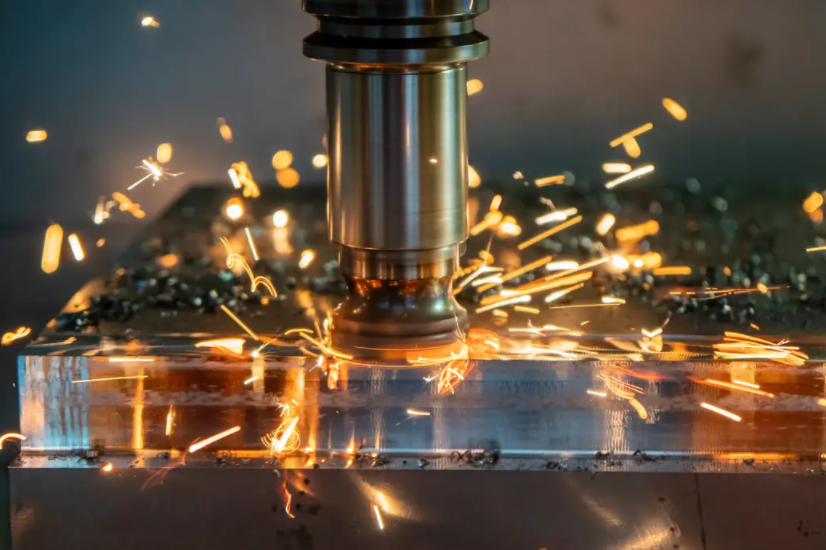Introduction
Magnesium, a lightweight and versatile metal, has gained significant attention in the manufacturing industry due to its numerous advantages and applications. Magnesium casting, a process that involves shaping magnesium into specific forms, has proven to be an effective method for producing complex and lightweight components. This article explores the advantages of magnesium casting and its various applications in the manufacturing industry.
Advantages of Magnesium Casting
1. Lightweight: Magnesium is the lightest structural metal, weighing about one-third of aluminum and two-thirds of steel. This exceptional weight-to-strength ratio makes magnesium casting an ideal choice for industries that require lightweight and high-performance components. The reduced weight contributes to fuel efficiency in automotive and aerospace applications, leading to improved performance and reduced emissions.
2. High Strength-to-Weight Ratio: Despite its lightweight nature, magnesium possesses excellent strength-to-weight characteristics. It offers comparable strength to aluminum while being significantly lighter. This unique property makes magnesium casting suitable for applications where strength is crucial, such as in the manufacturing of aircraft and automotive components.
3. High Thermal Conductivity: Magnesium has excellent thermal conductivity, which allows it to dissipate heat quickly. This property is particularly beneficial in industries where heat management is critical, such as electronic devices, power tools, and automotive cooling systems. By utilizing magnesium casting, manufacturers can achieve efficient heat dissipation, leading to improved performance and durability of the final products.
4. Good Electromagnetic Shielding: Magnesium exhibits excellent electromagnetic shielding properties, making it an attractive choice for industries that require protection against electromagnetic interference (EMI). Electronic devices, telecommunications equipment, and aerospace applications can benefit from the use of magnesium casting, as it helps prevent unwanted electromagnetic signals from interfering with sensitive components.
5. Excellent Machinability: Magnesium is known for its excellent machinability, making it easy to shape and modify during the casting process. This characteristic reduces manufacturing time and costs, as intricate designs and complex geometries can be achieved with relative ease. The machinability of magnesium also allows for efficient post-casting processes, such as drilling, milling, and threading, further enhancing its versatility in manufacturing applications.
Applications of Magnesium Casting
1. Automotive Industry: Magnesium casting has found extensive use in the automotive industry, offering several advantages. It is commonly used for the production of engine blocks, transmission cases, wheels, and various structural components. The lightweight nature of magnesium improves fuel efficiency, while its high strength ensures the required durability and safety standards.
2. Aerospace Industry: The aerospace industry extensively utilizes magnesium casting for a wide range of applications. It is used in the manufacturing of aircraft components, including engine casings, brackets, interior parts, and structural components. The lightweight properties of magnesium reduce the overall weight of the aircraft, resulting in lower fuel consumption, increased payload capacity, and improved performance.
3. Electronics and Telecommunications: Magnesium casting plays a vital role in the manufacturing of electronic devices and telecommunications equipment. It is used to produce casings, heat sinks, and frames that require efficient heat dissipation and electromagnetic shielding. The lightweight and excellent thermal conductivity properties of magnesium contribute to the longevity and performance of these devices.

4. Power Tools: Magnesium casting has become increasingly popular in the production of power tools, such as drills, saws, and sanders. The lightweight characteristics of magnesium allow for comfortable handling and reduced operator fatigue. Additionally, its high thermal conductivity ensures efficient heat dissipation, enabling longer tool life and enhanced performance.
5. Medical Industry: Magnesium casting is also making its way into the medical industry. It is used to manufacture lightweight and biocompatible components for medical devices, such as implants and surgical instruments. The biocompatibility of magnesium, combined with its lightweight nature, makes it an ideal material for applications where weight reduction and compatibility with the human body are crucial.
Conclusion
Magnesium casting offers numerous advantages and has found diverse applications in the manufacturing industry. Its lightweight nature, high strength-to-weight ratio, excellent thermal conductivity, good electromagnetic shielding, and machinability make it a preferred choice for various industries. From automotive and aerospace to electronics and medical applications, magnesium casting plays a crucial role in enhancing performance, reducing weight, and improving overall efficiency. As technology and manufacturing processes continue to advance, the use of magnesium casting is expected to grow further, driving innovation and shaping the future of the manufacturing industry.
-

- OEM die-casting components & parts
-

- OEM high pressure die casting magnesium alloy frame for bicycle
-

- Wholesale Magnesium Alloy Baby Cycle For 3 To 5 Years Old 12 Inch Kids Cycle OEM Cheap
-

- Magnesium alloy Thixomolding parts for oxygen suction machine housing
-

- High precision magnesium alloy die casting parts for automotive ignition lock
-

- Magnesium alloy die-casting Auto parts controller housing

 0086-750-5616188
0086-750-5616188 +86 13392089688
+86 13392089688 sales@zhongmei-tech.com
sales@zhongmei-tech.com







